Briefs
-
Prices in Hospital Outpatient Departments are Consistently Higher than Physician Offices among Site-Neutral Services
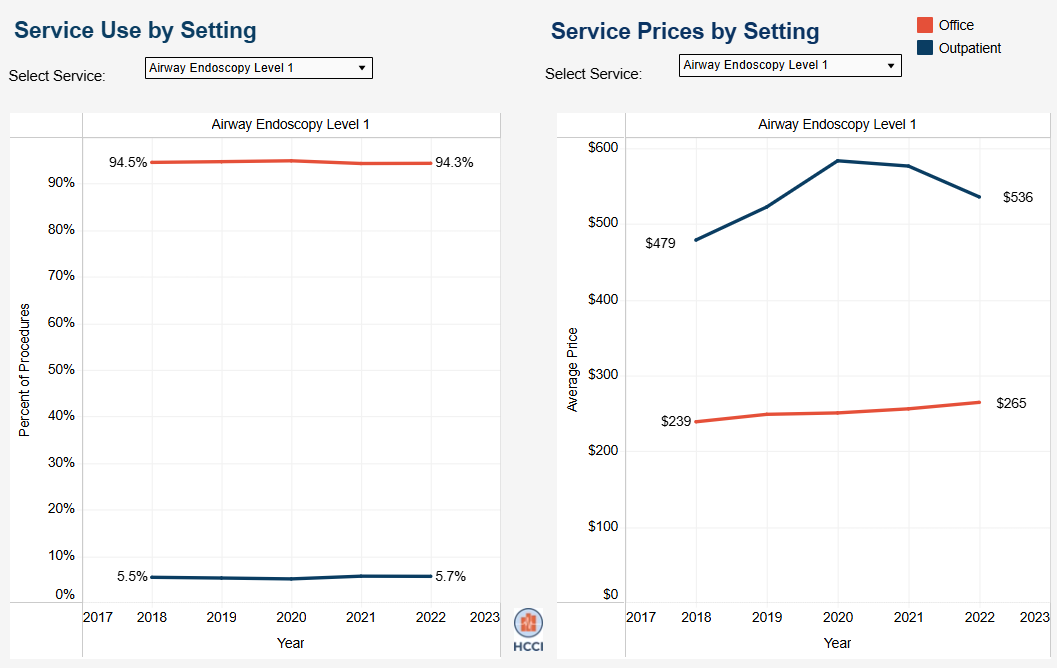 Read more: Prices in Hospital Outpatient Departments are Consistently Higher than Physician Offices among Site-Neutral Services
Read more: Prices in Hospital Outpatient Departments are Consistently Higher than Physician Offices among Site-Neutral ServicesAs federal and state policymakers pursue policies to lower health care costs, “site neutral payment” has emerged as a potential tool with bipartisan support to bring down spending. Adopting “site neutral payments” would mean that a given service would cost the same amount regardless of where the care was received (i.e., the site of service)….
-
Issue Brief: System-affiliated hospitals associated with higher prices
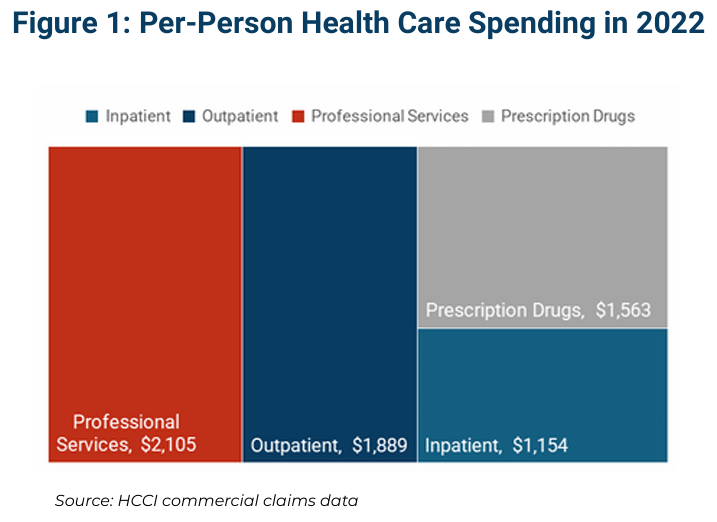 Read more: Issue Brief: System-affiliated hospitals associated with higher prices
Read more: Issue Brief: System-affiliated hospitals associated with higher pricesForty-five percent of per-person health spending among people with employer-sponsored insurance was spent on inpatient or outpatient services. The Health Care Cost Institute (HCCI) conducted an analysis of hospital inpatient and outpatient prices by key hospital characteristics from 2012-2022. During our study period, we found system-affiliated hospitals were associated with higher prices; non-profit hospitals were…
-
Rates of Blood Cancer Diagnosis Among Private and Public Insurers
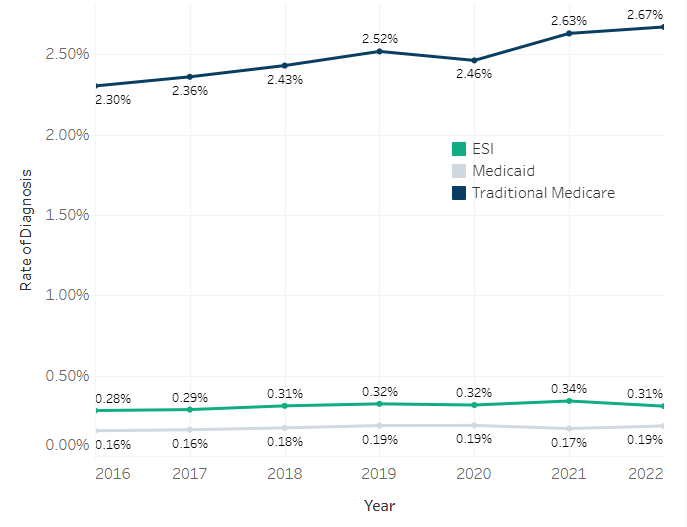 Read more: Rates of Blood Cancer Diagnosis Among Private and Public Insurers
Read more: Rates of Blood Cancer Diagnosis Among Private and Public InsurersBlood cancers represent a range of diseases that can affect blood cells, bone marrow, lymph nodes, and other parts of the lymphatic system. Health care claims data can provide insights into how many people are dealing with blood cancers. Using claims data from people enrolled in Medicaid, employer-sponsored insurance (ESI), and Traditional Medicare, this data…
-
How do Pre-Medicare Adults Aged 55-64 Interact with the Health Care System?
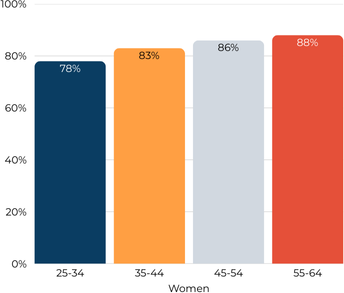 Read more: How do Pre-Medicare Adults Aged 55-64 Interact with the Health Care System?
Read more: How do Pre-Medicare Adults Aged 55-64 Interact with the Health Care System?The Health Care Cost Institute (HCCI), in collaboration with West Health, conducted an analysis on health care use and spend patterns among older adults with employer-sponsored insurance (ESI). This group is the key to anticipating future needs and demands on the health care system as they approach Medicare eligibility. We found that from 2018 to 2022, people aged 55-64…
-
Shorter Stays, Lower C-Section Rates, and Fewer System-Affiliated Hospitals Contribute to Lower Childbirth Costs in Rural Areas
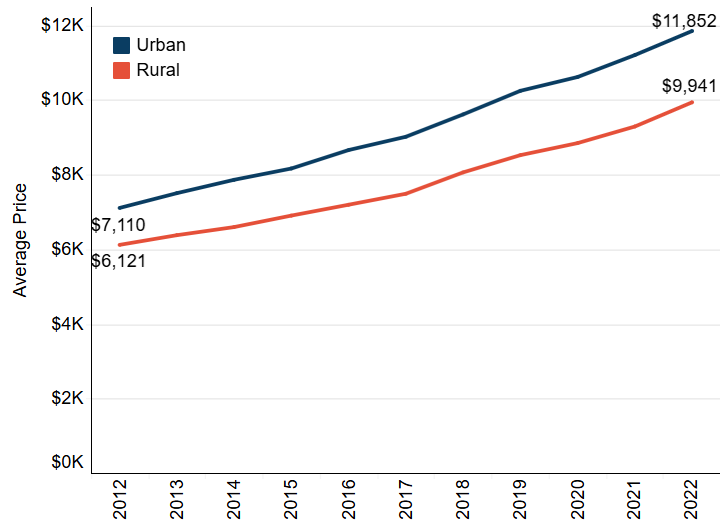 Read more: Shorter Stays, Lower C-Section Rates, and Fewer System-Affiliated Hospitals Contribute to Lower Childbirth Costs in Rural Areas
Read more: Shorter Stays, Lower C-Section Rates, and Fewer System-Affiliated Hospitals Contribute to Lower Childbirth Costs in Rural AreasChildbirth costs, outcomes, and access to care differ between rural and urban hospitals. Rural areas have fewer short-term general acute care (GAC) hospitals, with only about 35% of all GAC hospitals operating in rural locations in 2023. As rural hospitals continue to face financial distress, many unprofitable service lines, such as hospital-based obstetric service units…
-
From Prenatal to Postpartum Care, Total Spending on Childbirth Averaged over $25,000 among ESI Enrollees
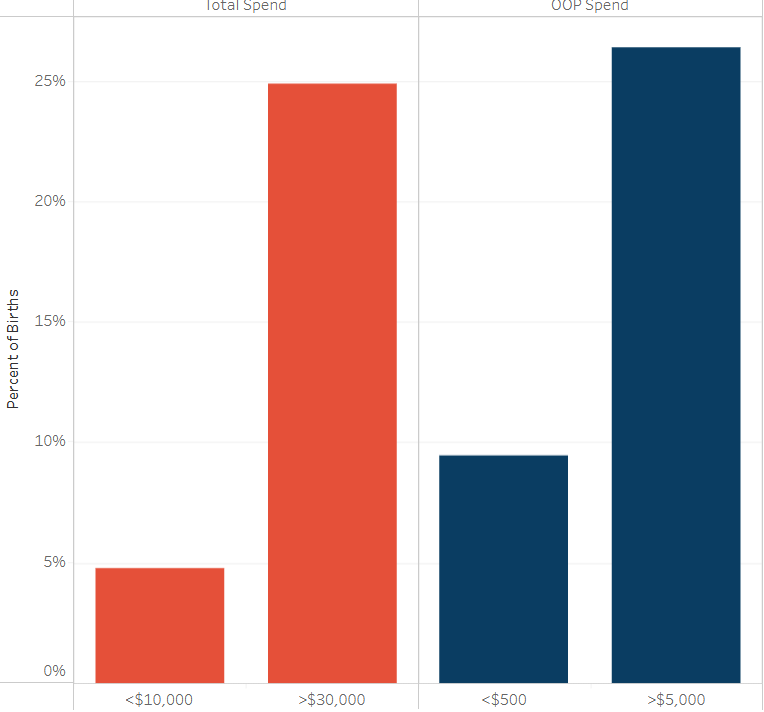 Read more: From Prenatal to Postpartum Care, Total Spending on Childbirth Averaged over $25,000 among ESI Enrollees
Read more: From Prenatal to Postpartum Care, Total Spending on Childbirth Averaged over $25,000 among ESI EnrolleesThe high and rising costs of childbirth pose a financial challenge to many families. One study found that 60% of pregnant and postpartum women reported having difficulty affording care, with women enrolled in commercial insurance more likely to report affordability challenges than those with public insurance. To understand the average total spending on childbirth related…
-
Off-label use of Semaglutides Continued to Grow in 2022 for those with Employer-Sponsored Insurance
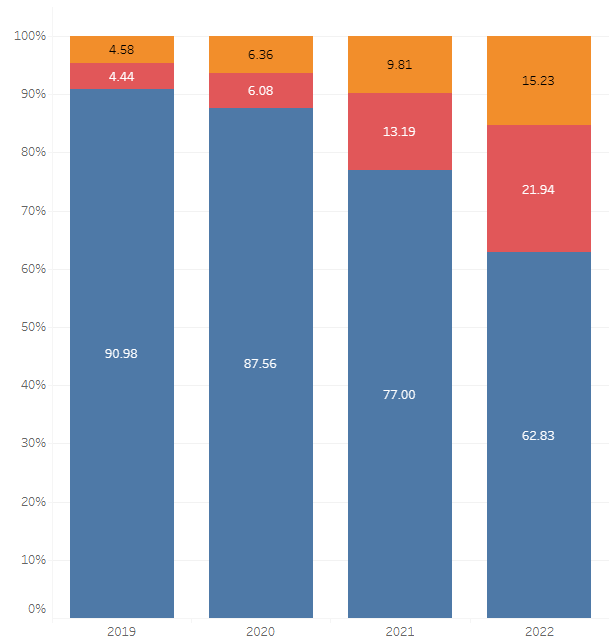 Read more: Off-label use of Semaglutides Continued to Grow in 2022 for those with Employer-Sponsored Insurance
Read more: Off-label use of Semaglutides Continued to Grow in 2022 for those with Employer-Sponsored InsurancePreviously, HCCI analyzed Ozempic medication use in the ESI population and found that the percentage of patients using Ozempic that had a diabetes diagnosis, the condition Ozempic is clinically indicated to treat, had decreased from 92% in 2018 to 77% 2021. This indicated a growing trend of off-label use of Ozempic. Our findings aligned with…
-
HCCI Spotlights Colorectal Cancer Awareness Month: Colorectal Cancer Screening Rates Increased 30% Among Ages 45 to 54
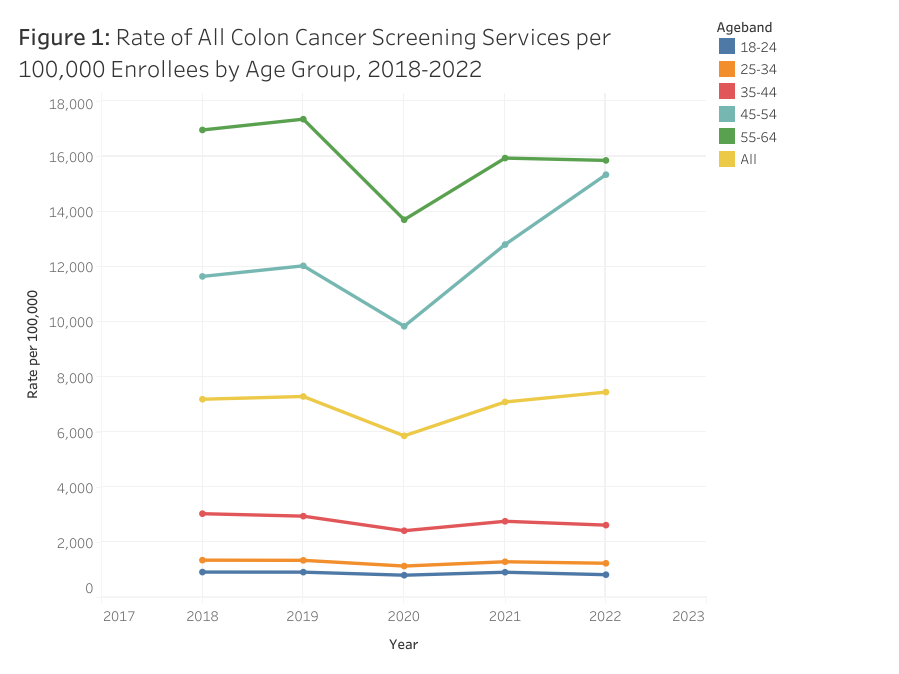 Read more: HCCI Spotlights Colorectal Cancer Awareness Month: Colorectal Cancer Screening Rates Increased 30% Among Ages 45 to 54
Read more: HCCI Spotlights Colorectal Cancer Awareness Month: Colorectal Cancer Screening Rates Increased 30% Among Ages 45 to 54Colorectal cancer is the fourth most commonly diagnosed cancer in the U.S. and the second leading cause of cancer death. Recently, a growing number of young people have been diagnosed with colorectal cancer. According to the American College of Surgeons, the incidence rate of early onset colorectal cancer is expected to double by 2030. While…
-
Women Diagnosed with Obesity Receive Treatment at Twice the Rate of Men
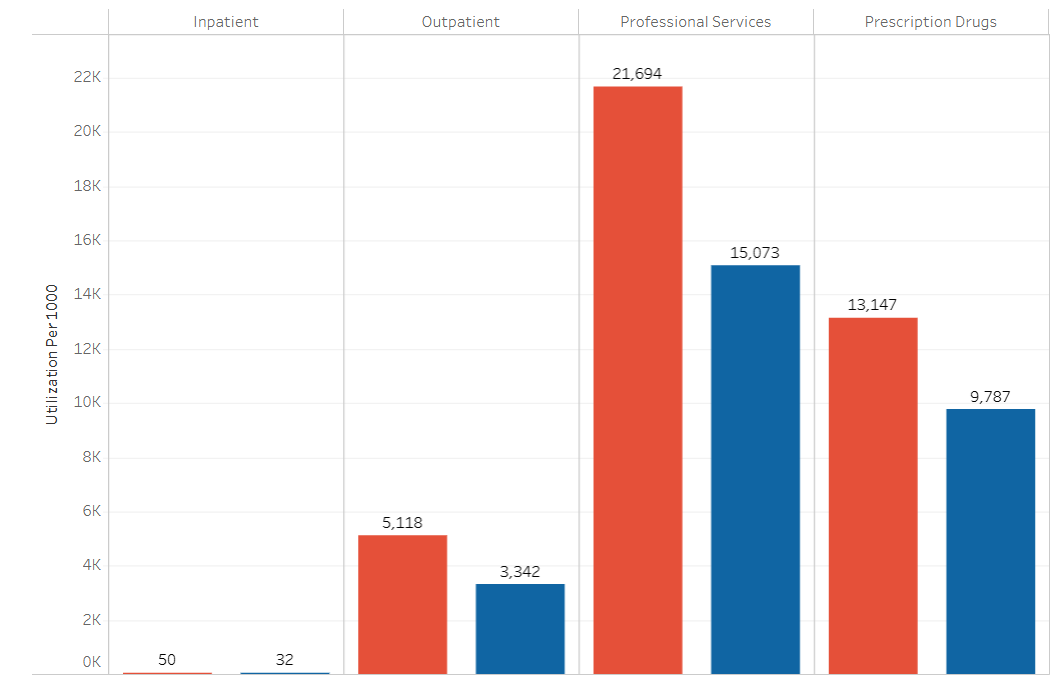 Read more: Women Diagnosed with Obesity Receive Treatment at Twice the Rate of Men
Read more: Women Diagnosed with Obesity Receive Treatment at Twice the Rate of MenPrior HCCI research has shown that women are more likely to use health care services than men. Among people who receive health insurance through their employer, we find that women are, on average, 1.4 times more likely to receive any health care services than men, and this trend has remained consistent over time. As shown…
-
Mental Health Service Use Among People with Employer-Sponsored Insurance
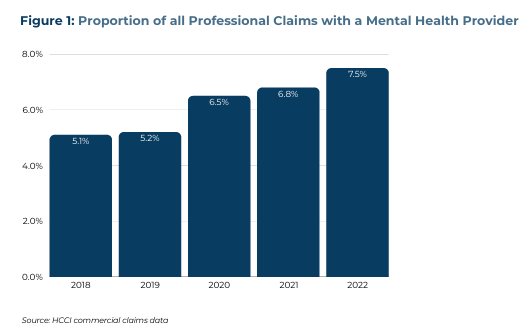 Read more: Mental Health Service Use Among People with Employer-Sponsored Insurance
Read more: Mental Health Service Use Among People with Employer-Sponsored InsuranceThe Health Care Cost Institute (HCCI), in collaboration with West Health, conducted an analysis on the use of office-based mental health services among people with employer-sponsored insurance (ESI). We found that use of mental health services has increased from 2018-2022, and that therapy was the most commonly used service. We found an increase in spending…
